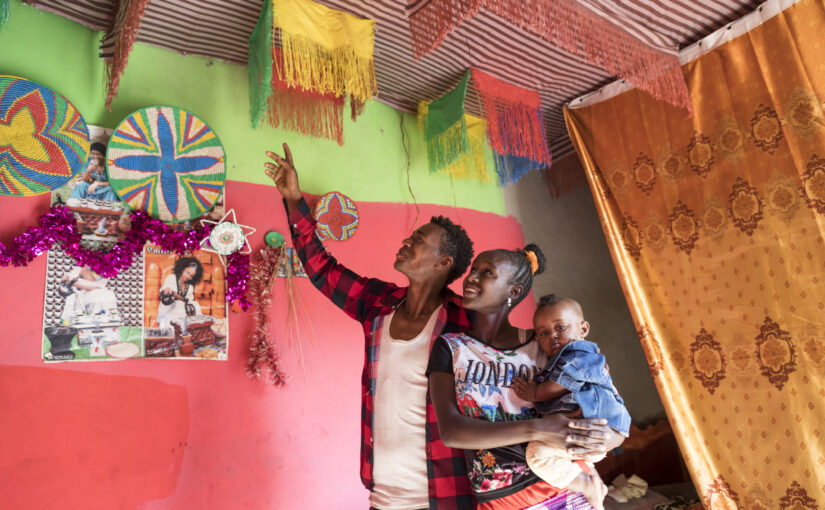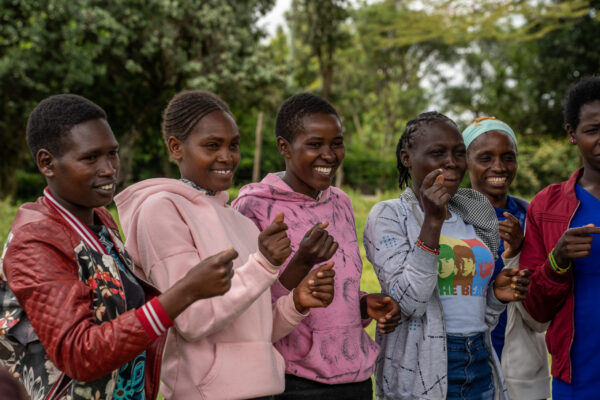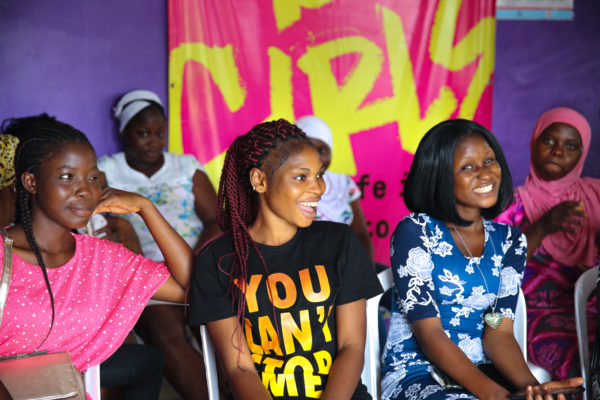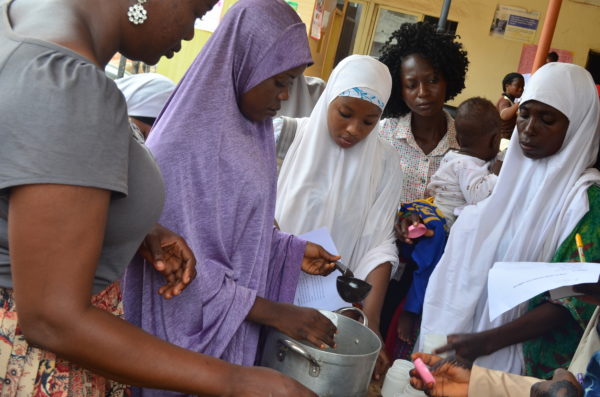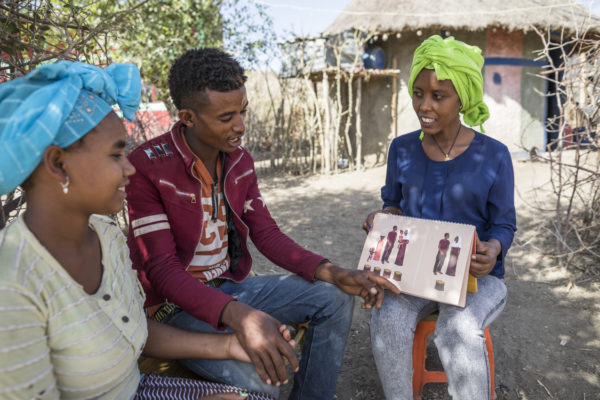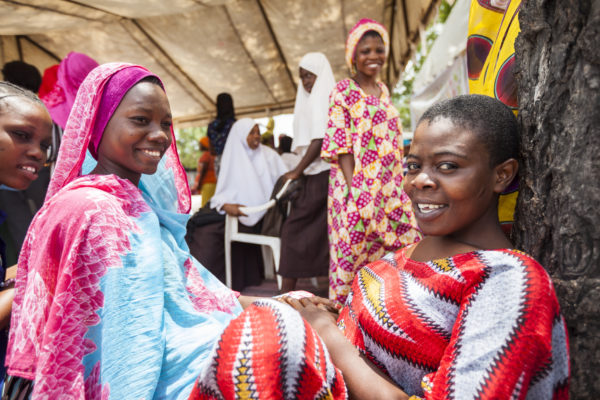For countless adolescent girls, their lives, opportunities and choices are too often influenced by a host of external factors—their parents, male partners, community leaders and more. An enabling environment that truly supports gender equality requires engaging girls’ influencers to support a girl’s right to owning her health and life choices.
This week, governments, civil society, youth, and many other players from around the world will come together at the Generation Equality Forum (GEF)’s Paris Summit to make commitments toward achieving gender equality. Not a single country can claim to have achieved gender equality. The COVID-19 pandemic has only exacerbated this issue, limiting adolescent girls from fully owning their own healthcare journey as they navigate deep-seated gender inequalities and restrictive gender norms. This forum marks a key moment to drive transformative, long-lasting change for girls.
Through PSI’s flagship adolescent contraceptive program A360, we approach girl-centered contraceptive programming from the perspective of the girls’ whole self, external influences included, offering a pathway to achieving sustainable gender equality for girls.
Multi-Generational Transformation
Through A360, we’ve seen that it’s not simply about getting a girl to see the value of contraception to her life. Without the support from her community and those around her, her chances of contraceptive discontinuation are high – and the likelihood that she stays engaged with the health system is low. Bringing her along on the journey requires engaging the forces that influence her world.
That’s why A360 approaches contraceptive programming through a multigenerational lens. A360 strives to influence the health system from the bottom up, beginning with the adolescent girl, in her home all the way through to the health system where gender inequalities flourish. Our approach includes:
- Actively examining the rigid gender norms and imbalances of power that often disadvantage adolescent girls and young women;
- Using these insights to advocate, alongside the community, for gender-responsive adolescent sexual and reproductive health (ASRH) policies and guidance to be integrated into the health systems
- Working alongside adolescent girls—and the forces that influence their lives—to enable them to advocate for their voice, choice, and agency
By engaging with these influencers – from mothers to husbands to community leaders and the health system – A360 works to:
- improve communication and trust between mothers and their unmarried daughters;
- strengthen the engagement of husbands as supportive partners and change makers;
- combat harmful practices and social norms that disadvantage adolescent girls;
- and support girls to build their agency, use their voice, and exercise choice
Here’s how.
Our Approach, In Action
For girls aged 15-19 and their partners, achieving financial security is a key factor in reaching their self-defined life goals. A360’s Smart Start intervention offers girls and their partners a chance to build their financial planning skills, engaging young couples in planning their futures. But A360 doesn’t stop there.
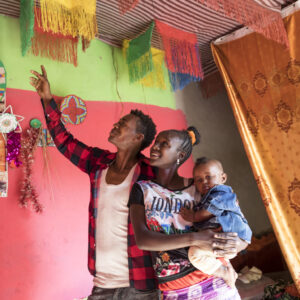
Our Smart Start programming strives to strengthen the engagement of husbands as supportive partners and change makers, offering girls the option to receive contraceptive counselling alongside their husbands, supporting girls and their partners to understand the resources they’ll need to plan for the families they desire.
In cases where married girls are counselled together with their husbands, there is a 20% higher likelihood of the girl voluntarily adopting a modern method of contraception. And to bring these positive trends to scale, the Smart Start is supporting the Federal Ministry of Health to reach married girls for the delay of their first birth and birth spacing.
For married adolescent girls in Northern Nigeria, A360’s Matasa Matan Arewa (MMA) intervention identifies husbands as key influences over girls’ health and life choices.
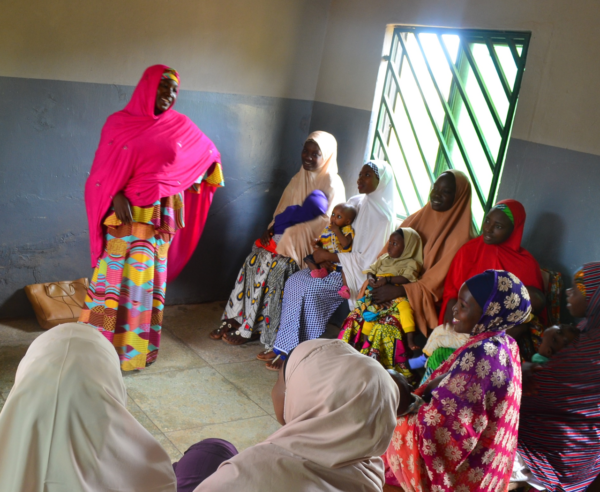
With the relationship between husbands and their young wives at the front of mind, MMA aims to meaningfully engage husbands alongside adolescent girls through messages that align contraception with the girls’ and couples’ family and life goals.
By generating support from husbands for girls’ participation in the intervention and equipping girls with life skills and contraceptive services through Life, Family and Health sessions, girls are enabled to own their power and choices through negotiation and shared decision-making power.
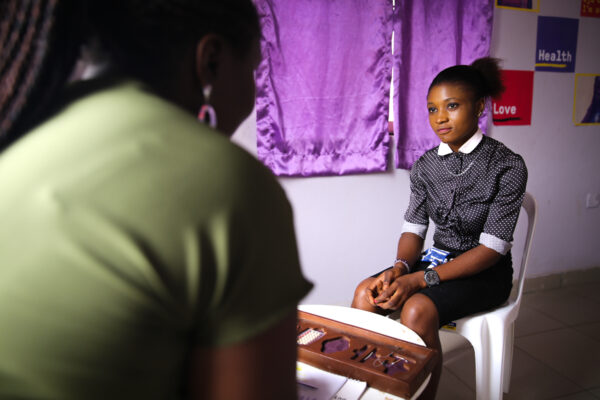
Amidst engrained cultural and societal inequitable gender norms, A360’s 9ja Girls’ intervention strives to connect contraception to girls’ lives and aspirations.
By offering Life, Love, and Health sessions that include life skills sessions and vocational skills-building, A360 uses an aspirational programming model to help girls see the relevance of contraception in achieving their life goals while also conducting bi-monthly sessions with mothers of adolescent girls, leading to community acceptance and support of girls’ contraceptive use and decision-making power.
And it works. The 9ja Girls’ vocational skills classes are widely praised by community members, mothers, and girls.
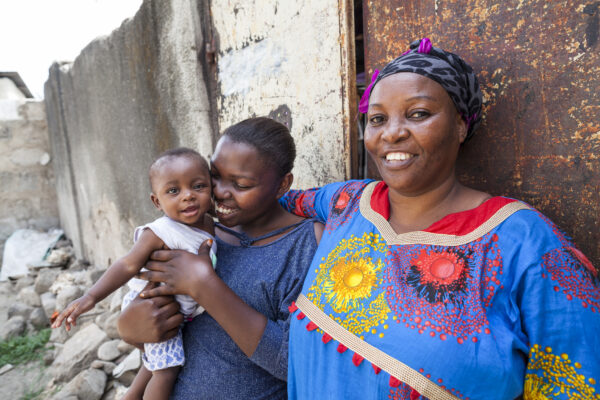
In Tanzania, sociocultural practices vary widely—with some communities explicitly recognizing a young girl’s sexual and reproductive health journey while others follow a more tacit approach. A360, through ), works within these cultural differences, aligning adolescent sexual and reproductive health (ASRH) intervention elements with long standing traditions and concepts that are familiar to girls and their community.
Through entrepreneurial skill building and tailored contraceptive counselling sessions, Kuwa Mjanja has been able to support girls as they take their healthcare and life decisions into their own hands and create enabling environments that support gender equality. And through pre-counseling efforts, we transform mothers and fathers into contraceptive allies by engaging them in pre-counseling efforts.
Small Changes Yield Big Impacts
Our experience shows that small changes in social norms can yield long term impact that sticks. And by bringing our multi-generational approach to scale, A360 is positioned to continue creating sustainable gender-based change.
The Generation Equality Forum offers the world a critical opportunity to recommit to this type of gender-based change, and as A360 looks forward, we will continue to support health systems across Nigeria, Ethiopia, Kenya, and Tanzania to do just that. With girls and governments leading the way, we can increase girls’ voluntary uptake of contraception and support girls to use their voice to choose the lives they want to live.
But to achieve a world in which every girl can reach her goals, we must go further. With an eye to sustainability, strategic investments in integrating girl-centered approaches into policy and practice are critical to ensuring sustainable social norms change at scale.

